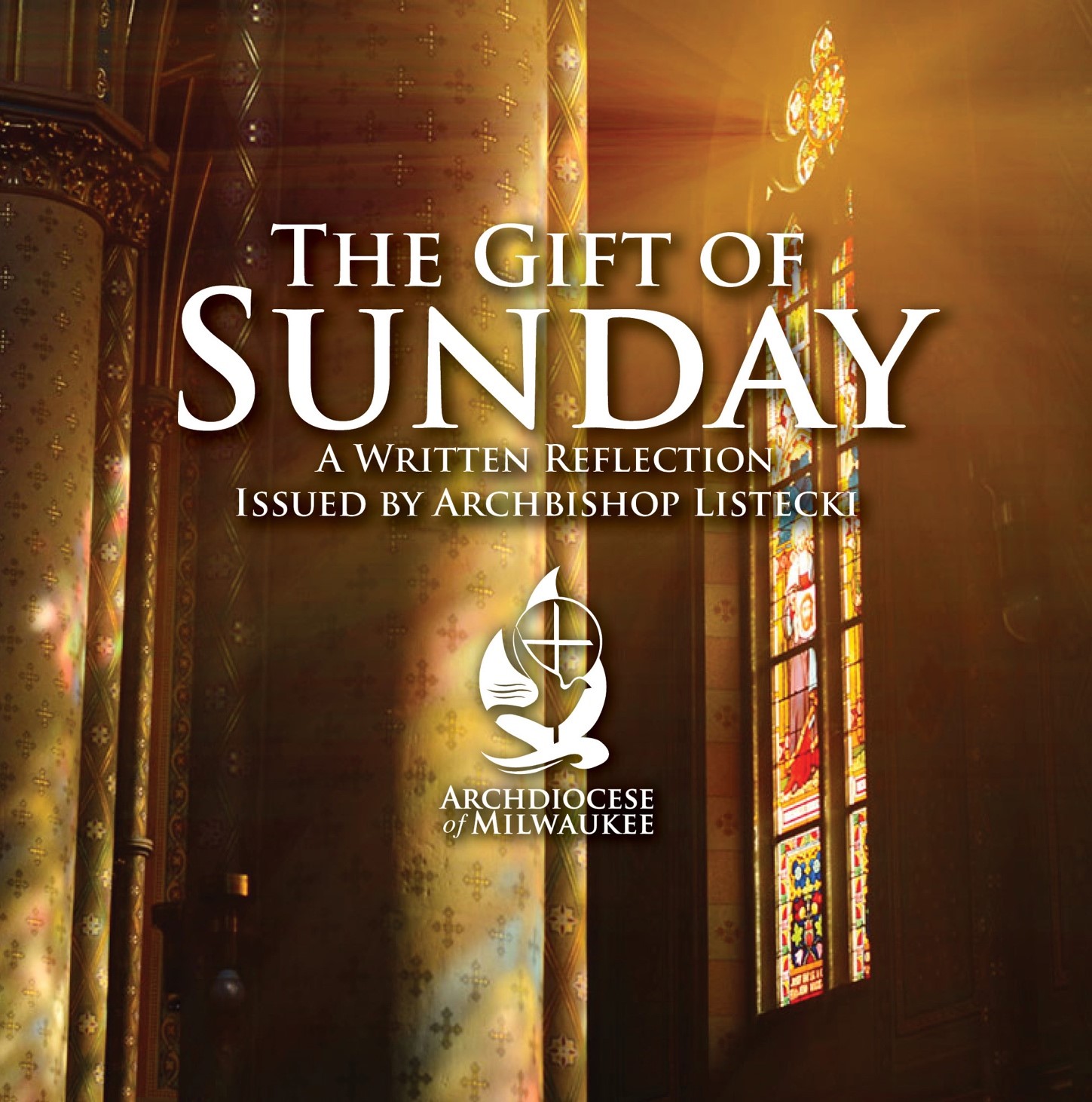The Gift of Sunday
Published with the ecclesiastical approval of Archbishop Jerome Listecki, “The Gift of Sunday” is a theological reflection, which explores the preeminence of Sunday worship in the life of the Catholic. Its accompanying study guide can be used for personal or group discussion. This is the second in a series of three articles wherein experts will help us address different questions contained within the study guide. To read “The Gift of Sunday” and its study guide in their entirety, visit archmil.org/Sunday-Initiative/Reflection.htm.
In God’s perfect plan for humanity, work was always meant to feed the soul and not just the body. In the pattern of God’s labors creating the world, we were meant to look at the fruits of our work and determine: this is good. And then, also following God’s lead, we were meant to rest before returning to our labors.
But one of the consequences of mankind’s fall from grace is a perpetual disconnect between labor and fulfillment. Certainly our work, whatever that work may be, can bring us joy and gratification — but it is no longer perfectly ordered to spiritual fulfillment. The nature of productivity has been corrupted so as to always tempt us toward what the Gift of Sunday identifies as “self-worship” — working harder, working longer and working only for ourselves.
And rest? Often, rest is no longer part of the cycle at all, at least as far as the modern world is concerned. Adherents to the cult of productivity in the fallen world have assumed tunnel vision when it comes not only to work but to the demands of our daily to-do list, and we have forgotten how to simply stop.
“A lot of us have a difficult time deciding not to do something because we feel like if we don’t, we’re going to be lazy, or because we’re missing some opportunity, and we’re all very opportunity-oriented people in our world,” said Fr. Nathan Reesman, pastor of St. Frances Cabrini and Immaculate Conception parishes in West Bend. Fr. Reesman’s parishes hosted one of the Lenten missions based on the Gift of Sunday, and have also organized study groups for the Gift of Sunday. “We’ve been programmed to think that missing out is the worst thing in the world, because this life is short and it’s all there is, so I’ve got to get it all in now. I think it takes a real profound heavenly eternal perspective to have the discipline to stop and say: ‘I don’t need to do it all now.’”
Exacerbating the issue is technology that is meant to aid us in our labors — smartphones and other devices which, said Fr. Reesman, “give us the illusion of thinking we can do more than we can.”
“People were always busy; there were always cows to milk and fields to tend, but it was a very different kind of labor. And when the sun went down and there was no power, your day was over with. You had to have leisure,” he said. “We’ve lost all of that because gadgets have made us non-stop people.”
The perfect solution God offers us is Sunday — “the heart of the renewal of the cosmos and of the entire fallen world,” as the Gift of Sunday puts it.
“The Law of Sunday, the obligation in love of Sunday, is given to rescue us from ourselves by fully redirecting our attention towards God,” reads the document.
“Worship serves that central function of anchoring me in another mode of existing and another understanding of reality,” said Fr. Reesman.
By the standards of this world, the Sacrifice of the Mass accomplishes nothing and produces nothing; it is merely a sum of its parts, which in themselves can appear, on the surface, as rote actions without meaning. But this is all if Mass is regarded in the same way as another item on our daily agenda — no more significant than the grocery shopping and the laundry.
If we step out of the mindset of this world, we can see the Mass for what it really is — the most ancient means by which God makes himself present to the Christian, going so far as to inhabit the very host that is consumed by him. This is the spiritual nourishment that, in a post-Eden world, work can never offer us.
“When one understands what worship is, one gets that it’s a very deliberately unproductive activity and a very deliberately otherworldly focused activity — and I require that to really rest because if I can’t rest, I’m still stuck in this world without a break,” said Fr. Reesman. “I have to engage in an activity that is intentionally not worldly to be able to rest in God — to be able to go back to the world.”

